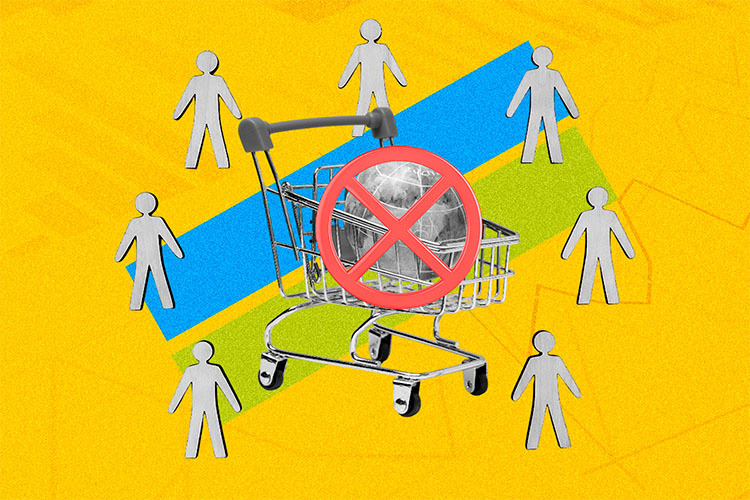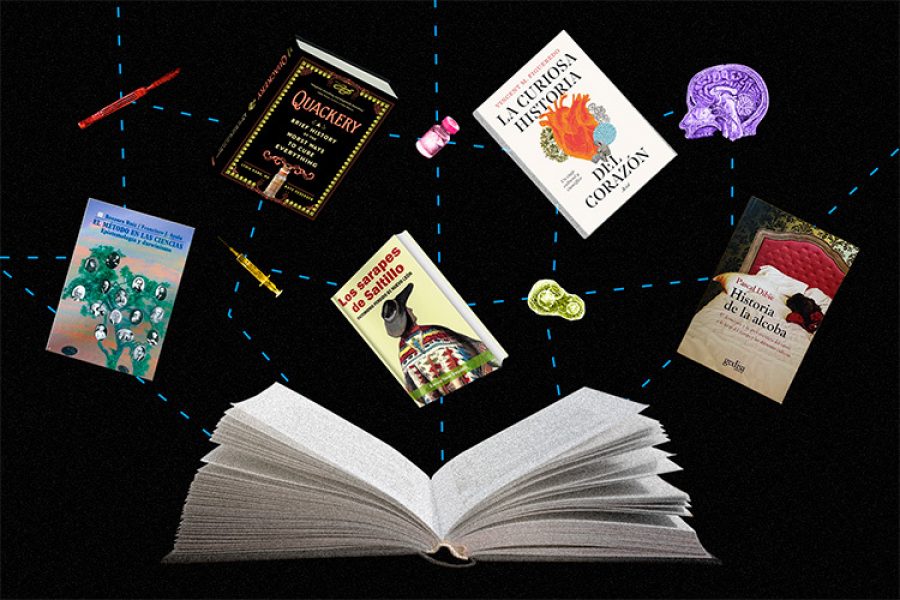To forgive or to punish? That’s one of the big dilemmas faced by the most loyal brand consumers when a company makes a mistake or violates values they hold dear. Their strong emotional commitment becomes a “double-edged sword”—in some cases, it makes forgiveness more likely, while in others, a deep sense of betrayal can turn them against the brand altogether.
This phenomenon is being studied by Jatinder Jit Singh, a research professor in the Department of Marketing and director of the Full-Time MBA program at EGADE Business School at Tecnológico de Monterrey. Singh has dedicated his career to exploring brand ethics and consumer behavior.
The professor is also collaborating with colleagues from the University of New South Wales in Sydney (UNSW) and the University of Texas at Austin (UT Austin) on a project analyzing how brand transgressions affect the emotional loyalty of consumers.
This type of loyalty reflects an emotional bond in which consumers feel a close connection—or even a sense of identity—with the brands they choose.
Understanding the Types of Brand Transgressions
In this study, the researchers distinguish between two types of brand transgressions:
- Performance-related transgressions, which involve issues such as poor quality, manufacturing defects, or product or service malfunctions. While these problems can be serious, they’re often fixable and more easily forgiven by consumers.
- Ethical or moral transgressions, on the other hand, involve intentional deception, manipulation, or actions that go against the values a brand claims to uphold in its public image. These are more likely to create conflict for consumers, especially when they feel those values have been violated.
Dieselgate Case Inspires Brand Research
For the researcher, a prime example of a moral transgression was the scandal known as Dieselgate, which embroiled the company Volkswagen in 2015. The automaker admitted to installing software that manipulated emissions data from its diesel-engine vehicles during pollution control tests.
The revelation sparked a wave of user reactions on platforms like X (formerly Twitter) and other social media networks. Posts expressed a complex mix of emotions toward the brand, ranging from love and loyalty to shame and guilt for having supported or purchased its products.
“When this example came out, it was a big deal. It felt like the whole world was talking about it—Volkswagen, a company known for its high standards, had committed this kind of transgression. So my colleagues and I started discussing the idea during those days. We got interested in the area to see whether this had any impact on consumers, and what kind of impact. That was the starting point, and we found many other examples. We decided to turn it into a research project, and we’ve conducted multiple studies—it’s still ongoing,” the researcher explains.
The team analyzed thousands of social media posts related to the scandal to identify common themes, emotions, and reactions during that period, as well as to gain a deeper understanding of the emotional bond consumers form with brands.
After that initial study, the researchers moved into an experimental phase, creating a variety of scenarios to explore cause and effect by manipulating two variables: the consumer’s level of emotional commitment to a brand and the type of transgression involved. This approach allows them to deepen and validate the insights they first observed during the Dieselgate case.
Studying Consumer Reactions
In one of the experiments, groups of participants were asked to think of a brand with which they had a strong emotional connection and felt a deep sense of identification. They were then presented with hypothetical scenarios in which those companies committed transgressions—both moral and performance-related—and were surveyed to assess their intentions and behaviors.
Among the findings, the research team discovered that emotional commitment can be a risky variable, as it produces opposite reactions in the face of ethical brand violations. On one hand, due to a strong emotional bond, some consumers are inclined to forgive and offer the brand a second chance, continuing their relationship and showing unconditional support.
On the other hand, that same emotional tie can lead to deeper feelings of betrayal, causing consumers to cut ties with the company, seek to punish it, and even take on activist roles by encouraging others to boycott the brand.
While performance-related transgressions do damage a brand’s reputation, they can often be repaired if the company takes corrective actions such as public apologies or compensation.
However, Singh points out that “a value-based transgression is deeper; it directly conflicts with the value system that a person holds very deeply. Each one of us has our own, and we identify with brands through it. If that link is broken, it’s very hard to recover.”
The team also found that shame is the emotion most likely to drive consumers to react negatively when a brand commits a transgression, more so than anger.
According to Singh, the team continues to conduct experiments in various parts of the world with diverse consumer groups. However, the research faces several challenges when it comes to gathering high-quality data and measuring real-world behavior.
One such challenge is the phenomenon of social desirability, where participants don’t answer honestly about how they would react to a brand’s wrongdoing. Instead, they tend to choose responses that are more “socially acceptable” or viewed favorably by others.
The results of this research are expected to be published in 2026. According to the researcher, the study could lead to the development of models or tools to help companies build ethical brands and act more responsibly—not only to avoid moral missteps, but also to know how to handle them effectively if they occur.
Singh adds that, in the end, we are all consumers. “We consume from the moment we wake up in the morning until we go to bed at night. And sometimes, even in our dreams, we keep on consuming.”
That’s why it’s important to understand how we respond to brand failures—so we can become more conscious, critical consumers.
Did you find this story interesting? Would you like to publish it? Contact our content editor to learn more: marianaleonm@tec.mx
















